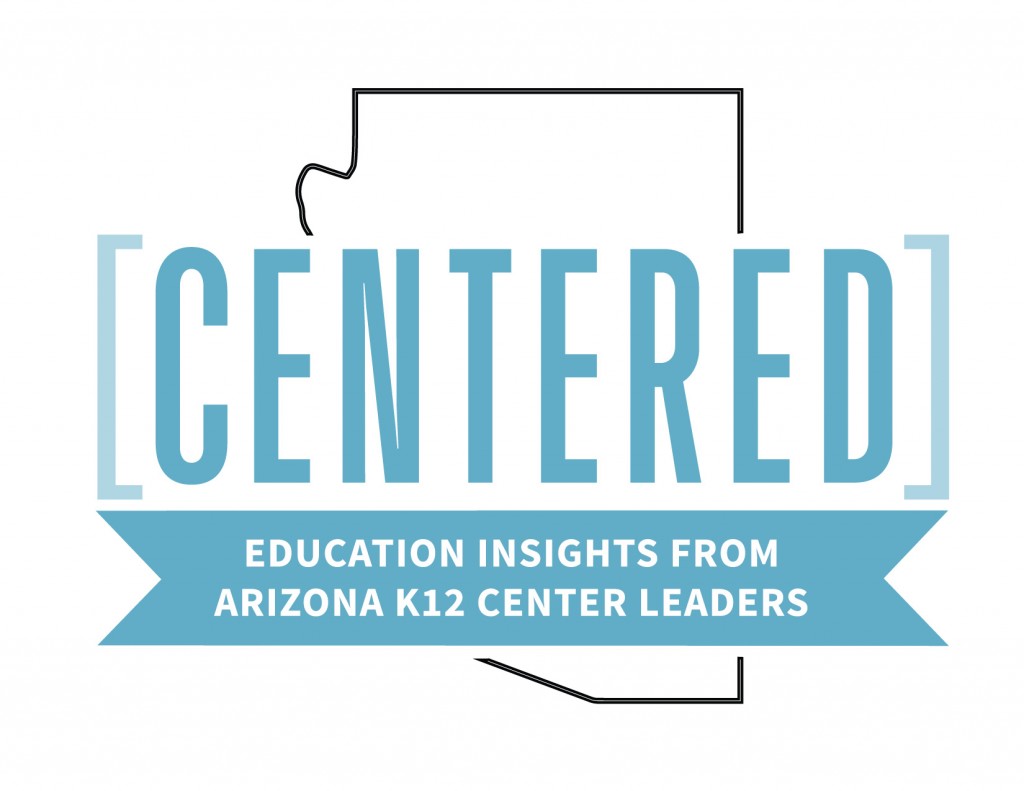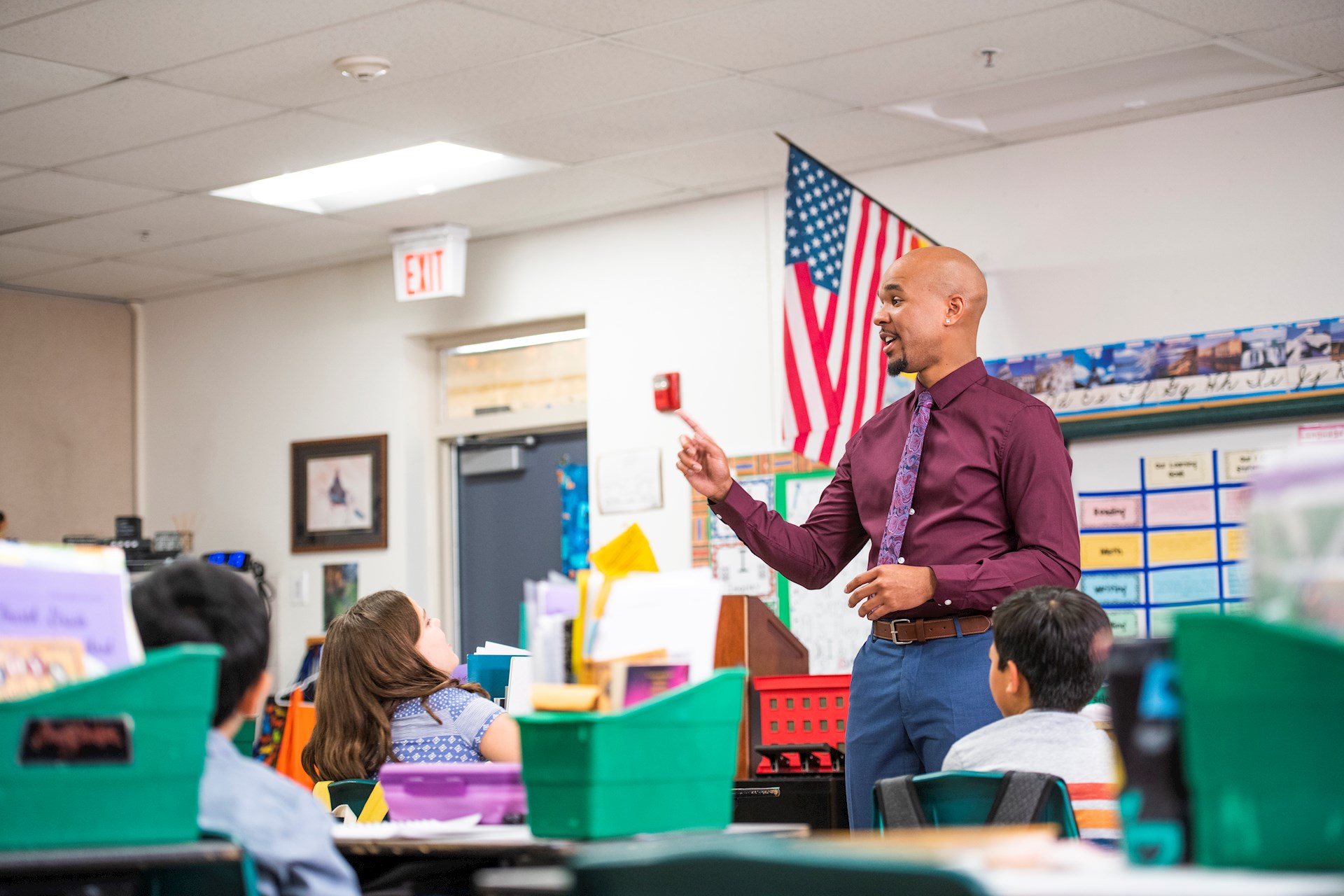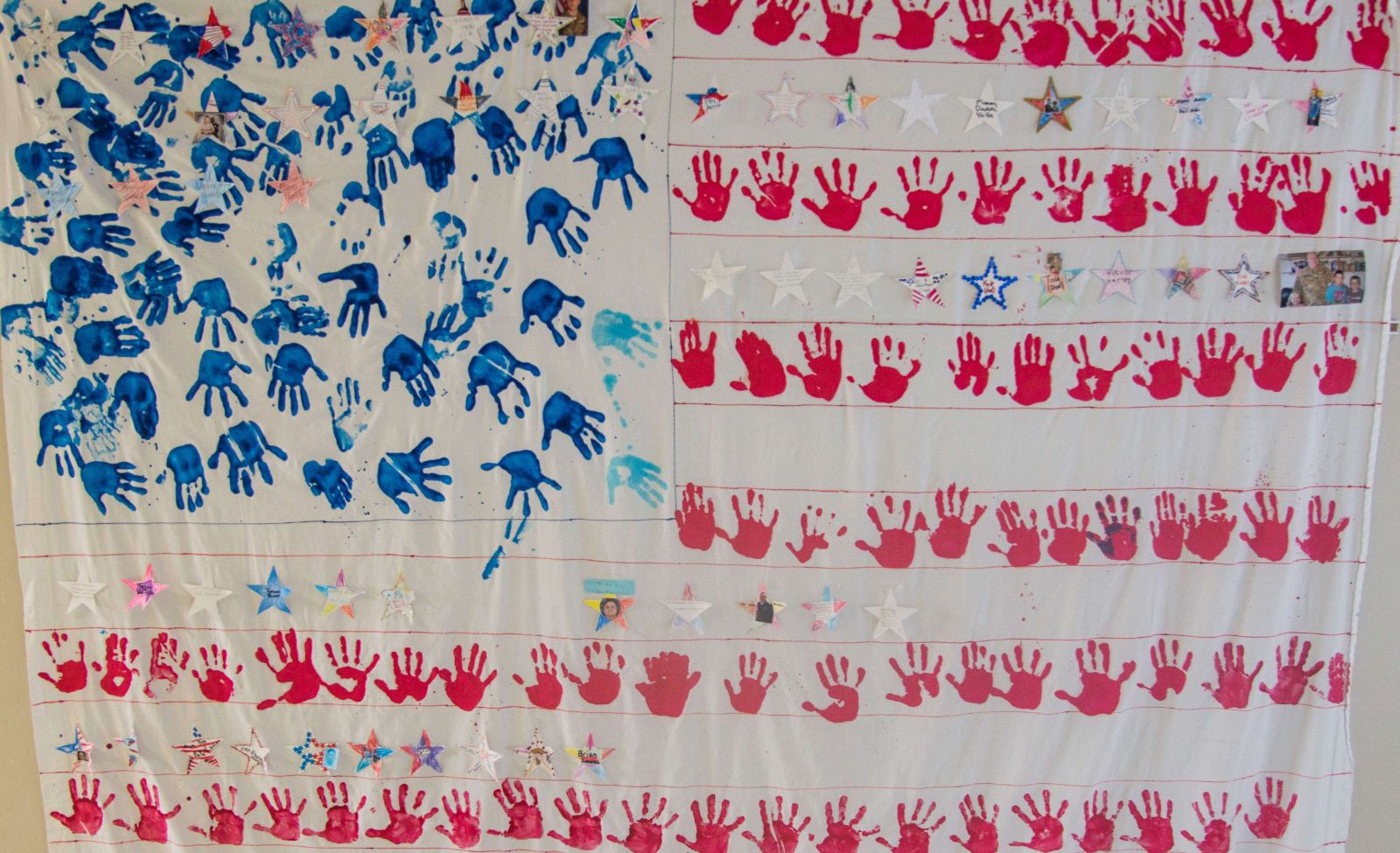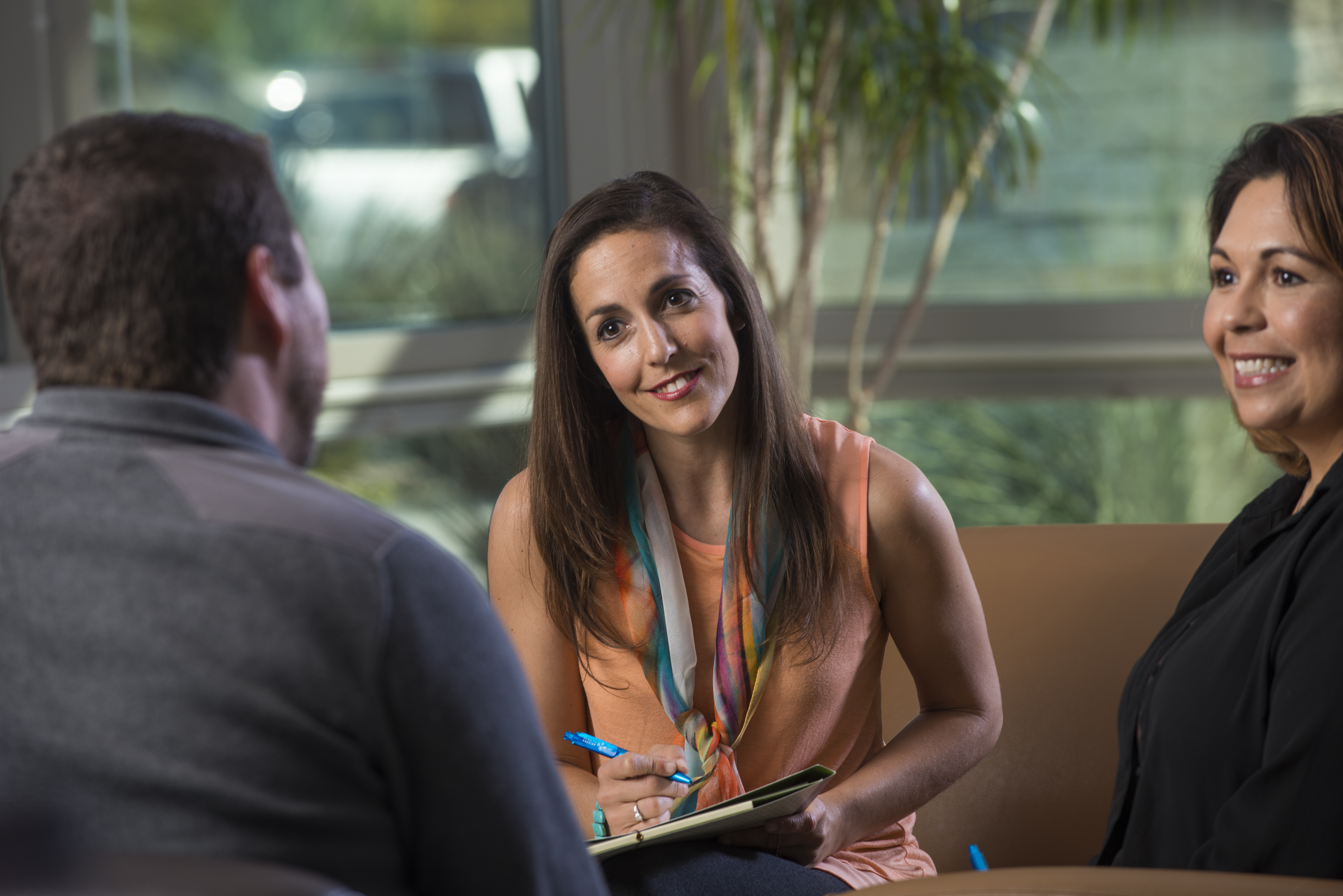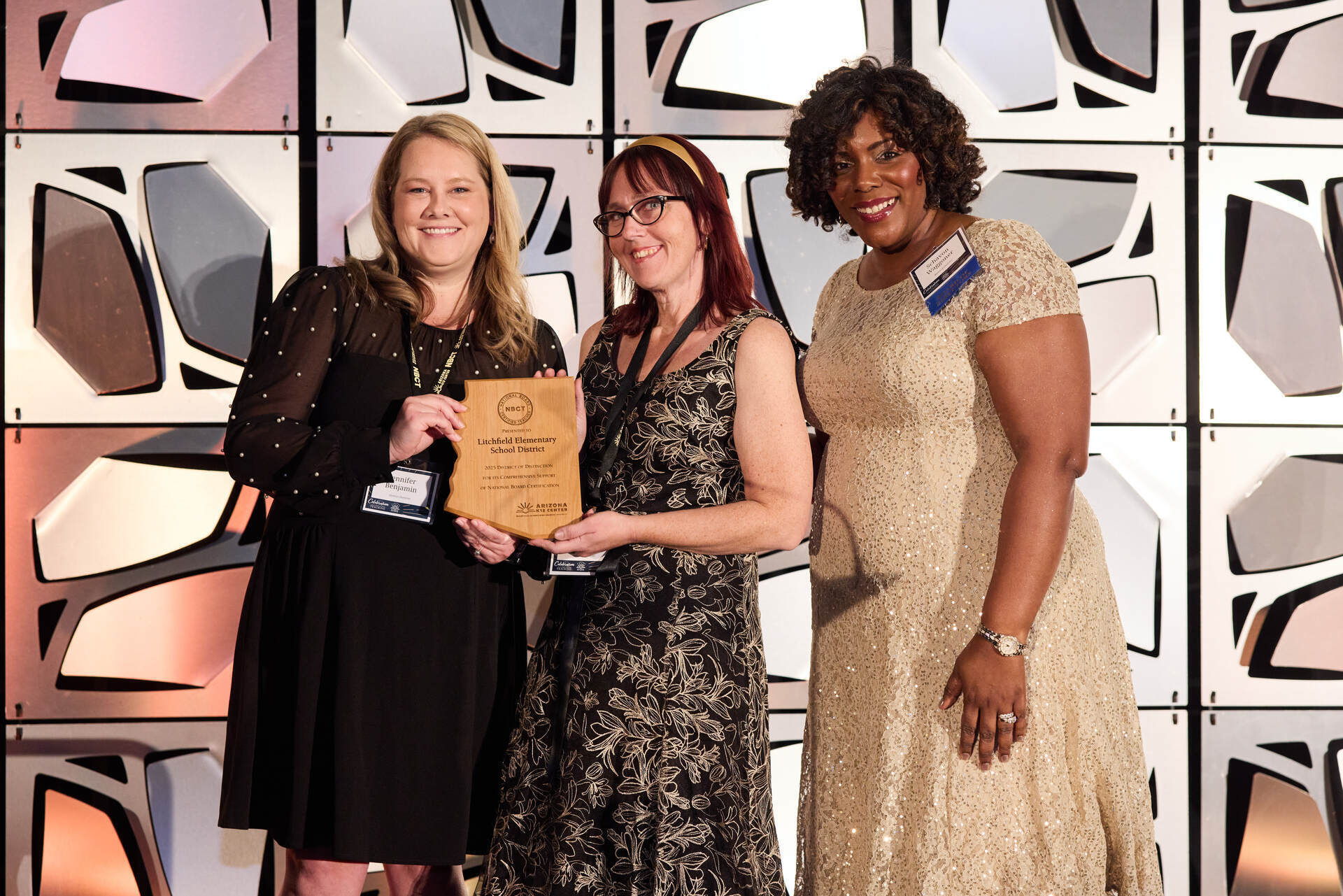Building a Robust Support System for Beginning Teachers
I always tell people that I have been a part of an Arizona public school community since I was 5 years old. The teachers I had in elementary school inspired me to be a teacher, and it was an economics professor I had in college that convinced me that I would make a great teacher. I remember my first day as a teacher—a special education teacher no less—where someone took me to where the supplies were housed for the five special education teachers saying to me, “This is all we have for the year. Don’t waste it.” That summed up my induction program. Any success I experienced came from my own perseverance, kind colleagues who readily shared materials and ideas, and caring professors from my teacher preparation program.
A lot has changed since my first day of teaching in 1981. After 17 years in the classroom, I was selected to be one of three mentors for beginning teachers in our district.
The district and union spent the year researching various programs. They talked about their goals for the program, the type of teachers they wanted to put in the roles of mentors, and how the mentors would function in their new role. They visited programs throughout the United States. This program was noteworthy because for the first time this district was pulling accomplished teachers from the classroom and putting them in the role of supporting beginning teachers.
I was part of a three-member team of mentors. None of us had ever done this work. While it was well-intentioned, there was no training or support provided to us. It was not done out of malice but rather a case of only knowing what you know. In fact, the district could not have been more excited for this work. We quickly realized, though, that the excitement around this idea was not enough to make the program work. There were no best practices shared with us to follow as mentors, no protocols, and little guidance on our role working with and observing our assigned beginning teachers. After a couple of months in, we went back to the district administration and explained our concerns. They listened and I remember the head of human resources telling us, “We’ll worry about getting us out of the contract but you need to find something that will work for you.”
I remembered a conversation I had a year prior with the associate director of the New Teacher Center. I still had the woman’s contact information. We reached out and, after several conversations, we had a mentoring program. The New Teacher Center trained us in being effective mentors and provided us with tools and protocols to use with the beginning teachers, all grounded in research. We still had many hiccups as we were building the proverbial bicycle while riding it, but we were on a path to building a program.
As I look back on that time, there were many things we did right and some things we got wrong. While the New Teacher Center backed a limit of a 1:15 ratio of mentor to new teachers, we often exceeded that number and never really capped it. By the time my three years were up as a mentor, my caseload swelled to almost 30 teachers, all in their first three years of teaching. We were so busy doing the job of mentoring that we did not build in time to connect and learn from one another. This led to times of acrimony and discord. But what we did right, we did well. The protocols and tools we used allowed us to have targeted conversations around teaching standards. We were able to customize the tools to fit Arizona’s teaching standards, creating a document (with some revisions over time) that is still in use to this day at the Arizona K12 Center. We were able to be in the classrooms while these novice teachers were teaching. We got to see it all and in a no-judgement zone, helping teachers move their practice forward. Like any classroom of students, some were naturals and others needed significant help. It didn’t matter. We all were there to support them.
That experience taught me much. I learned the power and importance of mentoring. I don’t think there is a profession today where on Day One you have the same job and responsibilities as the 10-year veteran next door to you. Beginning teachers are expected to do it all and do it well, oftentimes with little to no support.
That is why, when I worked at the Arizona Department of Education, I gathered together a group of stakeholders from across the state to create Arizona’s Induction Program Standards. Knowing the important role of standards and mentoring, I thought that if the state ever had two dimes to rub together to provide a quality induction and mentoring program I wanted to make sure it was grounded in standards. It might have been a fool's errand, but, at the same time, I needed to keep the idea of induction and mentoring alive and this seemed to be a place to start.
When I came to the Arizona K12 Center, I made sure that those standards were in our first publication, Standards of Professional Excellence, a compendium of Arizona’s Professional Teaching Standards, Induction Standards, and Professional Development Standards. I knew that if I did not include the Induction Standards they would get lost and forgotten. When the Arizona K12 Center became home to Governor Napolitano’s Master Teacher Program, a program to identify Master Teachers who would in turn support beginning teachers, those induction standards provided the foundation for that work.
Since the formation of that work, the Arizona K12 Center has been supporting and training mentors who are working with the newest members of the profession in their schools and districts. In 2017, Governor Doug Ducey said he was “looking for the best and brightest to commit to teach in Arizona public schools. If you make that commitment, we’ll make this commitment: your education will be paid for, a job will be waiting, and you will be free of debt.” As a part of this program, graduates of the Arizona Teachers Academy would receive one year of induction support at no charge. While each university has the latitude to implement this how they best see fit, Northern Arizona University asked the Center to provide the support for their graduates. Since 2018, we have been providing a robust induction program that includes a trained mentor for any graduate of NAU’s Arizona Teacher Academy program.
This is a long way of saying that our experience supporting beginning teachers and those that mentor them is long and deep.
With the prospect of statewide induction and mentoring potentially becoming a reality through Proposition 208, we worked with the Arizona Department of Education to bring together a cross-section of education leaders from across the state to revise and update those original induction program standards.
With the successful passage of Proposition 208, Arizona is in a unique position to provide support to every beginning teacher in Arizona. What a gift!
Arizona has a teacher retention problem. If done well, we could stem the tide of so many who choose to leave the profession in their first years of teaching. For this to work, any program needs to be grounded in what we know works. For too long, well-intentioned school leaders have established mentoring programs that were more of a buddy program. A program grounded in standards with trained instructional mentors who are in classrooms when the acts of teaching and learning occur can make a world of difference.
The Arizona K12 Center has prepared for this moment as we continue to evolve as well. The Center has been diligent in building our capacity to offer mentor training. We have maintained our relationship with the New Teacher Center and stayed current in practices and strategies. We have a team that continues to be a member of their networked community of programs. While the money from Proposition 208 won’t be in schools until 2022, the Center recently opened another round of funding to support mentoring and induction throughout Arizona. We are hoping school leaders use this opportunity to build a quality induction and mentoring program in their schools and districts through our Arizona Teacher Program (formerly known as the Arizona Master Teacher Program) in advance of funding. We are continuing our work with the Arizona Department of Education and stakeholders to create a set of tools and resources that can be used by people throughout Arizona as they design their mentoring programs. This year the Arizona K12 Center wants to initiate in-field coaching to better support those who serve the important role of mentoring as well as create a networked community of mentors.
The last two years have taken a toll on us all and we owe it to our teachers to be there for them as they have been there for Arizona’s children.
